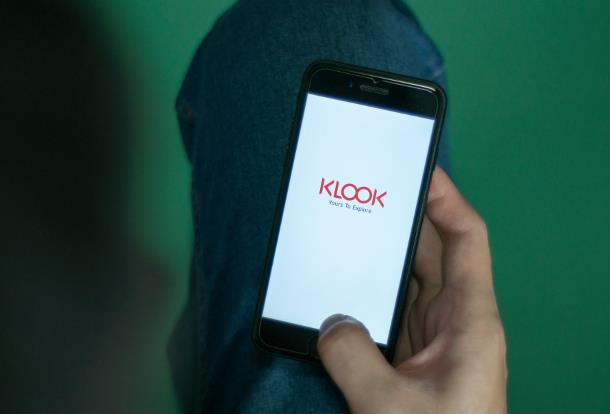
ChinaTravelNews, Ritesh Gupta – Travel companies have been left with no choice but to answer some hard questions as the coronavirus created havoc with low volume of bookings. Critical aspects that have been examined ranged from what role hotels and airlines can play in a consumer’s life to how to reach out to them to what to sell.
Certain trends, for instance, the ecosystem play where a travel brand just not offers a flight or a room but also even other non-travel products accelerated. Also, reaching out to consumers in non-traditional ways or touchpoints, too, came to the fore in 2020.
“Nowadays consumer behavior and decision-making for travel has shifted dramatically, it is important to stay agile with innovative way of thinking,” acknowledged Vivian Yeh, Vice President Marketing, Accor Greater China.
Led by senior management, travel companies in China have shown they are willing to experiment and embrace tools such as live streaming to garner bookings.
“For a hotel company or travel businesses (being impacted by COVID-19), user traffic is what we need. In the recovery phase, the most important strategy is to attract as much traffic as possible. Companies are trading discount for more customers in the early stage of recovery. We offered lots of package deals on our website and our OTA channels aiming to strengthen our cash flow and target some customers with travel needs. We have also done live streaming on Fliggy (in mid-June), attracting 1 million viewers,” said Heinz Xu, GM – Sales and Loyalty Programme, BTG Hotels.
There is an opportunity to look beyond popular ecosystems.
“Some of the most valuable conversion hacks or customer acquisition channels come from unconventional touchpoints. I particularly find interesting the financing related ones for the travel industry. Dream trips are sometimes used as an example of what could you do if you had additional consumption capacity. Financial installment services have been using travel to promote their own services for years, I do not think it is a new trend but the access to new service providers that enable small players to offer the service is definitely a very relevant for the travel industry,” said Shanghai-based Oscar Ramos, MD, Chinaccelerator, a start-up accelerator.
“Even in a market like China, where mobile shopping is an integral part of one’s life, digital channels have gained importance. They aren’t just about sales. Travel brands have to assess how they can use Tmall and others as a “digital shop window”, lay foundation for an immersive experience and explore new types of digital engagement,” mentioned a source.
On one hand, Accor rolled out innovative offerings with its lifestyle loyalty programme, ALL (Accor Live Limitless) to engage its members through passion points from domestic travel, dining, sports, wellness to other exclusive lifestyle benefits such as banquet and celebrations, on the other, the team led the way in collaborating with a blend of KOLs in Chinese live-streaming content and transactional capabilities to make full use of what social commerce has to offer today, shared Vivian. “We tap on the consumer culture and practices from different channels to identity the most relevant strategy,” she said.
Pivot
The business model pivot has been a talking point over the past few months. It is about enabling an organization to recover from a tough period or to do away with the original business model as it is no more unsustainable. But certain established organizations indicate that they had already sensed the need to be more agile and were sort of ready to deal with the crunch situation that emerged in early 2020. For instance, in case of Accor, the global company had already worked out and introduced its lifestyle loyalty programme, ALL, before the pandemic engulfed the entire world. Accor asserted that the spirit of hospitality extends beyond the stay.
Vivian terms this move as a “disruptive and dramatic shift” of Accor’s loyalty programme into a fully integrated global platform featuring rewards, services, and experiences across its entire ecosystem. This paves way for value in everyday life - work, live or play, she said, adding that ALL is all about being a lifestyle companion of members and guests. Accor has already moved on, from a sales-focused offering to one that is about culture and experiences.
There are certain categories which travel brands are increasingly counting on for revenue generation – for instance, selling food and beverages coupons, experiences etc.
In case of hotel chain BTG, F&B and hotel-related products are being sold on several channels such as their official website, OTA package offerings and coupons on WeChat Mini Program. “We also offer takeaway food on third-party food delivery platforms,” shared BTG’s Xu.
As travel brand look at offering more ancillary offerings, the intrinsic strength of a digital platform is being considered. For instance, in case of food or local services, the use of Meituan is being evaluated with a plan to capitalize on its core expertise of food delivery and related offerings.
Reaching out in novel ways
As the product basket evolves, organizations have been looking at touchpoints that aren’t just related to traditional ways of selling travel. Also, consumers in addition to factors such as price, are also prioritizing functional considerations such as flexibility and cleanliness in their purchase decision. All of this has to be taken care of to boost confidence.
Vincent An, Head of China Business, Klook shared, “With the pandemic, users worldwide have become more selective and discerning when making a purchase. Travel e-commerce platforms need to think beyond tactical promotions and discount-driven campaigns to win users’ hearts and minds during these times.” An said.
Alibaba has indicated that Chinese consumers are continuing to look for unique experiences across various product categories. Companies like Klook acknowledge the same.
“Our target audience in mainland China is Millennials and young adults in the country’s tier-1 cities. An observation is that these young users seek more adventurous, out-of-the-norm, and highly curated activities in their home city or other destinations, that they can share on social media. The activity’s FOMO (fear-of-missing-out) element tends to trigger a viral effect on social media such as Weibo, RED, and Douyin (China’s Tiktok).”
In July, Klook introduced its “Killing Your Weekend Boredom” campaign targeting young adults in Shenzhen who commonly share the sentiment of having limited choices of things-to-do in the newly developed city. After curating and launching a series of iconic surfing experiences in popular surfing spots close to Shenzhen, it collaborated with younger lifestyle KOLs to promote these offerings.
“As a result, we observed that surfing has gone viral and has become a new desirable weekend activity for Millennials and Gen-Z in Shenzhen. Our surfing offerings were snapped up for weeks ahead during the summer peak season and this eventually also increased the sales of our other outdoor activities such as hiking tours, wakeboarding, camping, and water-rafting across Guangdong province,” said An. Also, to capture the growing demand for staycations, Klook has curated and partnered with boutique hotels that are able to provide an extra experiential element in addition to the accommodation.
While travel brands can’t ignore the reach of Alibaba’s Fliggy, Meituan and Tencent’s WeChat, they have gone ahead with novel campaigns.
BTG’s Xu shared that the group worked on an initiative with Tencent’s gaming platform on some campaigns to attract more user traffic. “We also have traffic partnerships with JD.com, Didi and other online or offline platforms like banks,” he said. As for travel-related platforms, BTG chose to integrate its membership program with Fliggy to “acquire valuable members”. “We also leverage the Official Account and Mini Program platforms of WeChat to communicate our customers and we tend to think those are our own platforms,” said Xu.




